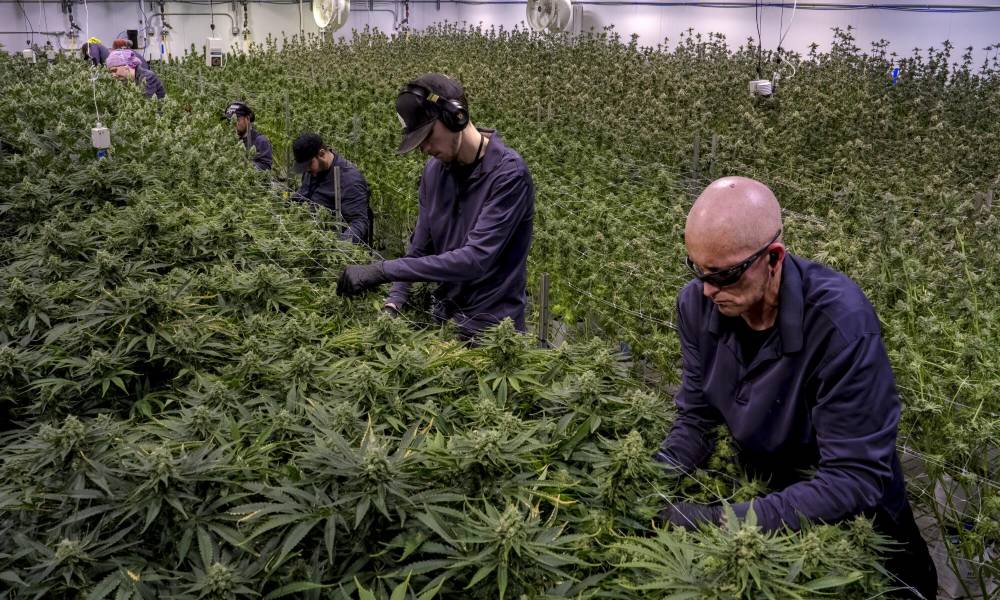With the recent election setting the stage for the coming years, Michigan’s cannabis industry faces a mix of opportunity and challenge in 2025. As the state’s legal cannabis market grows and matures, policymakers are likely to implement additional regulations aimed at balancing industry growth with public health, safety, and community impact. Here are some key predictions for Michigan’s cannabis industry post-election.
1. Increased Regulation on Product Quality and Safety
As the cannabis industry in Michigan expands, there’s a heightened focus on ensuring product safety and quality. We can expect:
Stricter Testing Standards: The state may enhance testing requirements to ensure cannabis products are free from harmful contaminants such as pesticides, heavy metals, and mold. This move would provide greater assurance of safety and quality for consumers.
Standardized Potency and Labeling: Michigan may establish more stringent guidelines for THC potency and require clearer labeling to prevent consumer confusion, especially for edible products and concentrates. Transparent labeling can build trust with consumers and help regulate the potency of products available on the market.
2. New Restrictions on Advertising and Marketing
As the cannabis market matures, Michigan may implement tighter controls on advertising to protect minors and ensure responsible marketing practices:
Age-Restricted Marketing: Advertisements targeting individuals under 21 are already restricted but expect further limitations on where and how cannabis products can be promoted. There may be rules limiting digital advertising and outdoor displays to reduce exposure to minors.
Community-Based Restrictions: Local communities may gain more control over where cannabis advertisements can be displayed, especially near schools, parks, and other
public spaces frequented by young people. This could impact how dispensaries and cannabis brands reach their target audiences.
3. Support for Social Equity Initiatives
With a growing focus on equity in the cannabis industry, Michigan is likely to expand programs designed to support communities disproportionately affected by past drug policies:
Expanded Licensing Opportunities: The state may increase licensing options or provide reduced fees for social equity applicants. There could also be more business support services to help these applicants navigate the licensing process and manage operations successfully.
Workforce Development Programs: Look for new initiatives aimed at training and hiring individuals from underserved communities, promoting economic opportunity, and creating pathways to ownership and employment within the cannabis sector.
4. Increased Oversight of Cultivation and Environmental Impact
As the cannabis industry grows, so does its environmental footprint. Michigan could introduce regulations to manage the resource demands of cultivation:
Water and Energy Usage Restrictions: Indoor cultivation requires substantial water and energy, and Michigan may establish usage caps or require growers to adopt more efficient practices. These regulations could include incentives for sustainable practices, like recycling water or switching to renewable energy sources.
Waste Management Protocols: Proper disposal of plant waste is critical to preventing contamination, and the state may implement stricter guidelines for cannabis waste disposal. This could include recycling requirements or approved methods for disposing of plant material and packaging.
5. Potential Changes in Taxation and Revenue Allocation
Tax revenue from Michigan’s cannabis industry has become a valuable source of state funds, and we may see adjustments in tax policy:
Tax Increases on High-Potency Products: To address health concerns around high-potency products, Michigan may implement a higher tax rate on these items. This approach has been adopted in other states to both deter excessive consumption and generate additional revenue.
Funding Allocation for Community Programs: Expect a focus on allocating cannabis tax revenue to fund social programs, public health, and education. These funds could also support substance abuse prevention programs and provide resources for local communities affected by cannabis-related issues.
6. Federal Influence and Future Legalization Possibilities
Although cannabis is still federally illegal, there is increasing pressure for change at the national level, which could bring new opportunities and challenges for Michigan’s cannabis industry:
Banking and Financial Services: If federal laws around cannabis banking change, Michigan’s cannabis businesses may gain access to traditional banking services, improving cash flow and operational efficiency. This change would allow more businesses to secure loans and better manage finances.
Interstate Commerce Considerations: Should federal restrictions ease, Michigan may face opportunities—and competition—for cannabis trade with other states. A shift toward interstate commerce would encourage Michigan to streamline its industry regulations and possibly encourage more large-scale operations.
7. Technological Innovations and Compliance Tools
Technology continues to play an essential role in the cannabis industry, and Michigan businesses may see increased expectations for utilizing compliance and operational tools:
Seed-to-Sale Tracking Enhancements: To improve transparency, the state may update or expand seed-to-sale tracking systems. Such systems monitor cannabis from cultivation to sale, reducing diversion to the illicit market and ensuring regulatory compliance.
Compliance and Security Technologies: New regulations may encourage or require dispensaries to implement advanced security systems, especially around digital transactions and inventory management. Automated compliance tools could become industry standard, improving operational efficiency and security.
Final Thoughts: Preparing for Change in Michigan’s Cannabis Industry
Michigan’s cannabis industry will continue to grow in 2025, but businesses will face new challenges as regulations adapt to a changing market. Operators should stay proactive, adapting to new policies and prioritizing compliance to remain competitive. By focusing on safety, community impact, and environmental sustainability, Michigan’s cannabis industry can continue its upward trajectory while balancing the responsibilities that come with growth.
Keeping an eye on evolving legislation and being prepared to meet regulatory standards will allow businesses to thrive—and consumers to enjoy safe, high-quality products in Michigan’s dynamic cannabis market.

